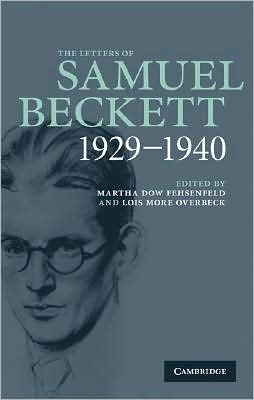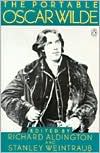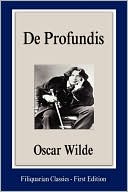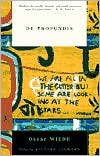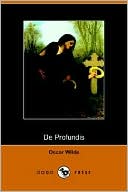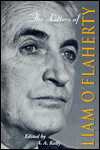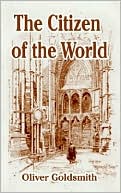The Letters of Samuel Beckett: Volume 1, 1929-1940
The letters written by Samuel Beckett between 1929 and 1940 provide a vivid and personal view of Western Europe in the 1930s, and mark the gradual emergence of Beckett’s unique voice and sensibility. The Cambridge University Press edition of The Letters of Samuel Beckett offers for the first time a comprehensive range of letters of one of the greatest literary figures of the twentieth century. Selected for their bearing on his work from over 15,000 extant letters, the letters published in...
Search in google:
This authorised edition with full scholarly apparatus will be welcomed by all scholars of modern literature and drama.The Washington Post - Michael DirdaAdmirers of Samuel Beckett, arguably the greatest writer in English of the second half of the 20th century, have grown used to waiting for Godot, who will surely come tomorrow or, just possibly, the day after. In the meantime, these similarly anticipated letters have quite definitely arrived, and in an edition more sumptuous than one ever imagined.
General introduction; French translator's preface George Craig; German translator's preface Viola Westbrook; Editorial procedures; Acknowledgments; Permissions; Abbreviations; Introduction to Volume I; Letters; Appendix; Profiles; Bibliography; Index.
\ Dwight GarnerAt nearly 800 pages, Volume 1, weighed down with scholarly apparatus, makes a mighty thunk on the coffee table. But reading it is far from homework: the Beckett we meet in these piquant letters, most written when he was in his late 20s and early 30s, is rude, mordantly witty and scatological yet often (and this is perhaps the biggest surprise) affectionate and wholehearted.\ —The New York Times\ \ \ \ \ Joseph O'Neill…an elating cultural moment is upon us. It is also a slightly surprising moment. Beckett, in his published output and authorial persona, was rigorously spare and self-effacing. Who knew that in his private writing he would be so humanly forthcoming? We always knew he was brilliant—but this brilliant? Just as the otherworldliness of tennis pros is most starkly revealed in their casual warm-up drills, so these letters, in which intellectual and linguistic winners are struck at will, offer a humbling, thrilling revelation of the difference between Beckett's game and the one played by the rest of us.\ —The New York Times Book Review\ \ \ Michael DirdaAdmirers of Samuel Beckett, arguably the greatest writer in English of the second half of the 20th century, have grown used to waiting for Godot, who will surely come tomorrow or, just possibly, the day after. In the meantime, these similarly anticipated letters have quite definitely arrived, and in an edition more sumptuous than one ever imagined.\ —The Washington Post\ \ \ \ \ Publishers WeeklyStarred Review. \ Shuffled among publishers for too long, the selected letters of the great Irish novelist and playwright Beckett (1906-1989) are finally here, the first in a projected four-volume set. Beckett, known for his love of silence and texts that attenuated to nearly nothing, was a veritable letter-writing machine, though only his letters to director Alan Schneider have been previously collected; this project may well represent the last great corpus of typed and handwritten correspondence from a literary giant. Beginning with two letters from the then-unpublished 23-year-old to James Joyce (helping the master with some Greek translations), and ending with a short note describing a Bram Van Velde painting seen just before the Nazis took Paris, Beckett struggles valiantly, endlessly, to find himself (included is a 1936 request for admission to the Moscow State School of Cinematography). There's much to discover, including Beckett's relations with forgotten Irish poet Thomas McGreevy and some explicit shop talk, including a 1937 letter to Axel Kaun in which he outlines his ambition: "to drill one hole after another into the English language until that which lurks behind, be it something or nothing, starts seeping through." Accompanied by smart, exhaustive notes, chronologies and solid bios of all correspondents, this collection will no doubt deepen Beckett scholarship, as well as fans' appreciation.\ Copyright © Reed Business Information, a division of Reed Elsevier Inc. All rights reserved.\ \ \ \ \ \ Library JournalThe first letter in this first of four volumes is by Samuel Beckett (1906-89) to the illustrious James Joyce, Beckett's muse and mentor. The letter is concise, informative, and gracious, nothing more-not unlike many of Beckett's letters to friends and associates. The countless letters collected here are newsy, chatty, sometimes caustic, challenging, and even disillusioned. Other times, they are charitable, hopeful, and actually sweet in tone. The subject often deals with business matters, but also with poetry, music, and art. It is obvious that Beckett appreciated writing and receiving letters; his way of handling practical matters was another way of being creative. Most of all, letter writing for Beckett was the best way of staying engaged. The reading of the letters is benefited by the thorough research and care of the editors, including a chronological presentation, the naming of the recipient, and the place of origin. Of course, the soul of the book is Beckett himself: his will, his doubts, his intransigence, his need for recognition, his angst, his mind, and his heart. Recommended for all libraries.\ —Robert Kelly\ \ \
